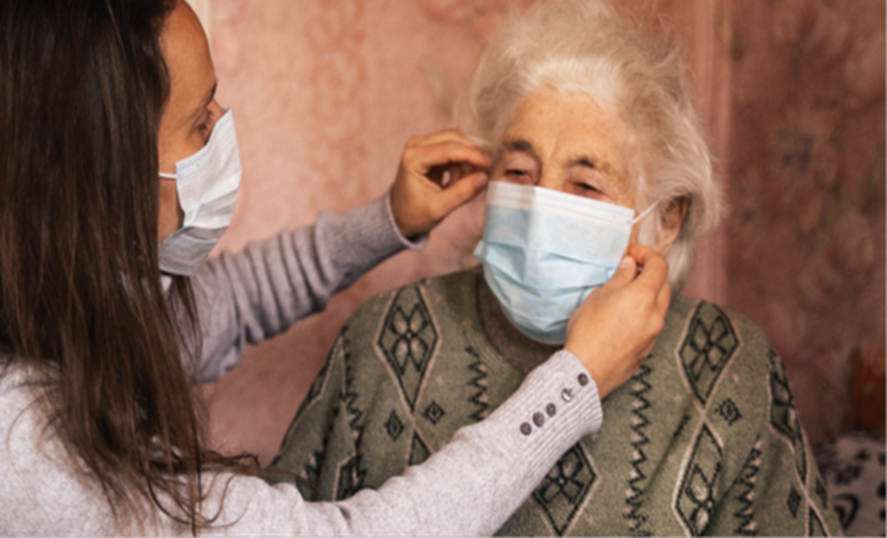
Ethical challenges for social workers during COVID-19
Purpose
The Social Work Ethics Research Group (SWERG) of the European Social Work Research Association (with world-wide membership) conducted a small unfunded piece of collaborative research on the ethical challenges faced by social workers globally during the COVID-19 outbreak. The objectives were to understand and identify specific ethical challenges arising in these circumstances; how social workers are responding; the moral impact on social workers; and what further guidance could be given to support ethical decision-making in a crisis. The research was conducted rapidly during April/May 2020, with the aim of supplementing the ethical guidance already available through professional associations and other bodies.
“This entire COVID problem shows the real racism that exists, the inequality of opportunities.”
Germany
Method
During May 2020, a group of academics in partnership with the International Federation of Social Workers (IFSW) launched a qualitative survey, asking for details of the ethical challenges faced by social workers during COVID-19. We described ethical challenges as ‘situations that give cause for professional concern, or when it is difficult to decide what is the right action to take’. Canada had the largest number of responses to the survey itself. The total of number of respondents was 607 including, front-line workers, managers and social work students. In addition to the 505 survey responses, 11 interviews were undertaken in Hong Kong, China, with social workers/managers. The Japanese Federation of Social Workers also translated one question about what ethical challenges were being faced, and 91 additional responses were received via the four Japanese associations. Respondents came from 54 countries. Almost 80% self-identified as female, with over half having more than 11 years’ experience in social work. The original online survey form was available in Chinese (simple and complex), Dutch, English, French, Spanish and Slovenian.
The Team
- Sarah Banks (Coordinator), Durham University, UK
- Tian Cai (Research Assistant), Durham University, UK
- Ed de Jonge, University of Applied Sciences, Netherlands
- Jane Shears, The IFSW Ethics Commission
- Rory Truell, IFSW Secretary-General
- Michelle Shum, Hong Kong Baptist University, Hong Kong
- Ana M. Sobocan, University of Ljubljana, Slovenia
- Kim Strom, University of North Carolina, USA
- María Jesús Úriz, Public University of Navarra, Spain
- Merlinda Weinberg, Dalhousie University, Canada

Initial Findings
Six themes related to ethical challenges and responses emerged from the research:
- 1. Creating and maintaining trusting, honest and empathic relationships via phone or internet with due regard to privacy and confidentiality, or in person with protective equipment.
2. Prioritizing service user needs and demands, which are greater and different due to the pandemic, when resources are stretched/unavailable and full assessments often impossible.
3. Balancing service user rights, needs and risks against personal risk to social workers and others, in order to provide services as well as possible.
4. Deciding whether to follow national and organisational policies, procedures or guidance (existing or new) or to use professional discretion in circumstances where the policies seem inappropriate, confused or lacking.
5. Acknowledging and handling emotions, fatigue and the need for self-care, when working in unsafe and stressful circumstances.
6. Using the lessons learned from working during the pandemic to rethink social work in the future.
“We have necessarily suspended respite.… Will the child be victimized again by his parent?”
Canada
Initial Publications from this Research
Weinberg, M. (2021). Exacerbation of inequities during COVID-19: Ethical implications for social workers;Canadian Social Work Review, 37 (2), 9-15.
Banks, S., Cai, T., de Jonge, E., Shears, J., Shum, M., Sobočan, A. M., Strom, K., Truell, R. Úriz, M. J. & Weinberg, M. (2020). Banks, S., Cai, T., de Jonge, E., Shears, J., Shum, M., Sobočan, A. M., Strom, K., Truell, R. Úriz, M. J. & Weinberg, M. (2020). Practising ethically during COVID-19: Social work challenges and responses. International Social Work, 63(5), 569-583.
Banks, S., Cai, T., de Jonge, E., Shears, J., Shum, M., Sobočan, A. M., Strom, K., Truell, R. Úriz, M. J. & Weinberg, M. (2020). Ethical challenges for social workers during COVID-19. A global perspective. Rheinfelden, Switzerland: International Federation of Social Work, ISBN 978-3-906820-21-7.
Other areas of research:
Processes of Inclusion and Exclusion
Ethics in Social Work Practice
Structural Barriers The Impact on Ethics for Social Work Practice
Pregnant with Possibility Reducing ethical trespasses in social work practice with young single mothers.
